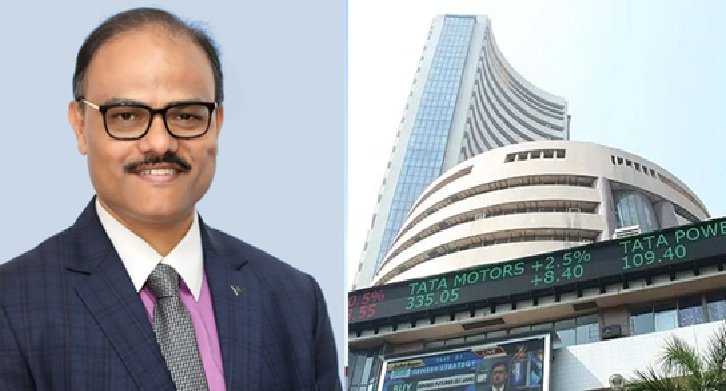-
TGI SME Capital Advisors posted an update
1 month, 1 week agoFrom Informal to IPO: Preparing Indian SMEs for Capital Markets
By Ajay Thakur, Managing Partner, TGI SME Capital
India’s entrepreneurial spirit has never been in doubt. Across every town and city, small and medium enterprises (SMEs) power commerce, jobs, and innovation.
Yet what separates thriving SMEs from those that stagnate isn’t just product quality or entrepreneurial drive—it’s their ability to formalize, scale, and engage effectively with the capital markets.
Having worked with family-run businesses and first-generation entrepreneurs for over a decade, I’ve seen ordinary firms transform into industry leaders once they embraced the discipline, transparency, and long-term mindset required for market readiness.
The Formalization Imperative
India’s MSME sector consists of about 6.34 crore enterprises:
• Micro enterprises: ~6.3 crore (99.5%)
• Small enterprises: ~3.3 lakh (0.52%)
• Medium enterprises: ~36,000 (0.01%)While micro and small units generate over 11 crore jobs, it is the structured growth of small and medium units that paves the way for capital-market readiness.
The challenges are clear: many MSMEs still rely on cash-based transactions, incomplete financial records, and informal governance. These practices may sustain businesses in their early stages but become serious barriers when seeking growth capital.
Formalization isn’t a checkbox—it’s a credibility signal. Investors, customers, employees, and partners trust enterprises that demonstrate:
• Transparent financial reporting
• Robust internal controls
• Documented business processes
• Succession planning and leadership depthFor ambitious SMEs, these are not costs but strategic investments in scale.
Success Stories That Inspire
India’s SME exchanges have delivered some remarkable success stories. Beyond strong fundamentals, several companies have demonstrated sustained growth in revenues, profitability, and market capitalization since listing:
• Knowledge Marine & Engineering Works (2021): Market cap up +6,378%. Expanded its business through long-term port contracts, asset-light operations, and government projects.
• Laxmi Goldorna House (2020): Market cap up +6,071%. Benefited from rising gold demand, strategic expansion, and consistent earnings growth.
• Concord Control Systems (2022): Market cap up +4,789%. Established itself in railway safety systems, supported by Make in India and strong order inflows.
• Advait Infratech (2020): Market cap up +3,672%. Leveraged opportunities in clean energy and power transmission, building stronger financials.
• PNGS Gargi Fashion Jewellery (2022): Market cap up +2,743%. Expanded through franchise-led retail, strengthening brand recall and operations.
These cases underline how sectoral tailwinds, government policy support, disciplined business expansion, and strong brand positioning can turn SMEs into sustainable wealth creators.
Yet, among 1300+ SMEs listed, only a select few have consistently delivered year-on-year growth for more than five years. These are the true role models—proof that SMEs can evolve into resilient, high-quality listed companies with global ambitions.
The Other Side: Bottom SME IPOs
While several SME listings turned into multi-baggers, many others went the opposite way.
In some cases, businesses declined sharply after listing, leading to suspensions and significant wealth erosion for investors.
Weak fundamentals, poor governance, and lack of sustainable growth caused some companies to stagnate or collapse, wiping out over 90% of investor value in extreme cases.
In fact, we have also observed instances where weak fundamentals, poor governance, and unsustainable business models attracted regulatory scrutiny.
SEBI and the stock exchanges have since become more vigilant. In certain cases, investigations have been initiated to protect investor interest.
Learning from past episodes, both SEBI and the exchanges have tightened listing criteria, raised minimum investment thresholds, and made migration to the main board more stringent.
New rules mandate a minimum ₹1 crore profit in two of the last three years, restrict promoter stake sales, and impose phased lock-ins.
The minimum application size has been raised to two lots (₹2+ lakh), while mainboard migration criteria have become more stringent — with higher revenue, profit, and shareholder thresholds on both NSE and BSE.
This ensures only fundamentally stronger SMEs with consistent profitability and governance standards can scale up through public markets.
The Transformation Blueprint
Preparing for an IPO is like planning a family wedding—it requires patience, precision, and the commitment of the entire ecosystem. The journey typically spans 18–24 months and includes:
• Professionalizing management: independent directors and senior leadership hires
• Strengthening compliance: GST, SEBI norms, and governance practices
• Engaging stakeholders: building trust with customers, employees, suppliers, and investors
• Crafting a compelling narrative: articulating value proposition and growth strategy
Done right, this preparation permanently elevates how an SME operates—even before it lists.
Strategic Insights for SME Leaders
From years of working with SMEs on their IPO journeys, five insights stand out:
1. Customer-centricity fuels sustainable innovation. Ice Make Refrigeration won investor trust by solving India’s cold chain problems with local solutions.
2. Governance is a growth catalyst. Compliance and transparency attract not just equity but also affordable debt.
3. Balance patience with boldness. Big moves like IPOs or acquisitions demand courage—when backed by data, they can redefine a company’s future.
4. Invest in people. The first 10 employees help you survive, the next 100 help you scale, the next 1,000 help you sustain.
5. Communicate consistently. Trust is built not just through numbers but through regular dialogue with all stakeholders.
MSMEs and Capital Markets: A Growing Convergence
Over the past decade, 1300+ SMEs have listed on NSE Emerge and BSE SME platforms, raising more than ₹50,000 crore. Their combined market capitalization now exceeds ₹4,00000+ lakh crore, with many companies graduating to the main boards and becoming institutional favorites.
But listing is only the first step. Long-term wealth creation requires SMEs to deliver predictable growth, year after year, while adhering to robust governance and compliance frameworks.
Final Thought
Your enterprise’s origins may be modest, but its future need not be. Out of 6.34 crore MSMEs, only a fraction will embrace the discipline needed to access public capital.
For those who do, the rewards are transformative: access to scale, wealth creation, and the chance to shape India’s economic destiny.
The journey from informal to IPO is not easy—but it is possible, and profoundly rewarding. The only question is: are you ready to prepare for it?
_______________________________________________________About the Author : Mr Ajay Thakur is Managing Partner at TGI SME Capital and a veteran of India’s SME capital market ecosystem. With over two decades of experience in developing equity markets and guiding entrepreneurs, he has been instrumental in shaping SME listing platforms and enabling family-run and first-generation businesses to access growth capital. His mission is to help Indian SMEs formalize, scale, and emerge as globally competitive enterprises.


